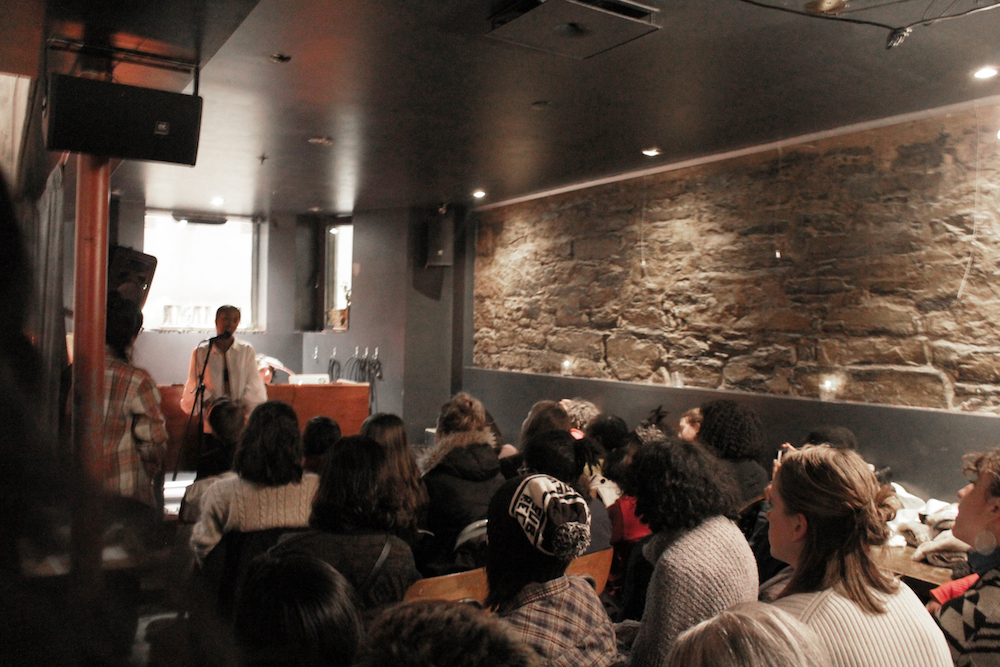What poetry means to the readers at Kafein café-bar’s 100th Poetry Nite show
Spoken-word poetry not only helps the reader share their personal battles; it also helps listeners who are going through similar experiences, according to poet Eliza Prestley. She was among the group of new and returning poets who shared their work at Kafein café-bar’s 100th Poetry Nite show on Jan. 16.
“It’s a healing process,” she said. “When there are poems that address a topic that multiple people are dealing with, you can hear it in [the audience’s] reactions. There is an understanding that someone else feels this too.”
For Prestley, poetry is an art form that connects with its audience in a way that not many art forms can. “If someone else has written it, they [expressed] what you have felt or what you’ve experienced, but you [wouldn’t have] put it into those exact words,” she said, adding that hearing someone else express an experience you have been through can identify and validate your own experience.
Last Tuesday night, Prestley read two poems centred on the theme of sickness and its challenges. “It’s about different ways that people are sick; how I consider myself sick and how others view me as sick through things like thinking that homosexuality is sick,” she explained.
Mariam Saleh, another reader that evening, described poetry as liberating. “There’s something empowering in telling a room of strangers all of these deep, personal things about yourself and knowing that it’s okay because it’s just a poem,” she said. “It’s about making something beautiful out of emotions that are negative.”
Saleh’s first poem was about her journey to Canada. “My first poem was about being care-free, love and being young,” she explained. “I came here to Montreal after living in Egypt, and I just wanted to encapsulate the feeling of summer and languidness.”
Saleh emphasized the importance of words in our society. “I think everyone is a writer at heart,” she said. “What is really beautiful about humanity is that we have language, and the things we can do with language are really amazing.”
Preksha Ashk, who also read a piece at the event, said poetry is an emotional release. “For me, it’s my therapy. It’s one of those things that kept me going when there was nothing else.”
This wasn’t the first time any of these poets had read at Poetry Nite. According to all three, every time they get up in front of this audience, they can be themselves without judgment. “I’ve performed at Kafein a couple of times,” Saleh said. “It’s a safe space. Especially with sharing art, it puts you in a vulnerable position, and it’s not always easy to do it. It’s always great that there are places like these that are made to be a safe environment where everyone can contribute and share [their poetry] and accept and support each other.”
Prestley, Saleh and Ashk each encouraged students to write unapologetically whenever possible. “Focus on yourself and what you want to share. Don’t think so much [about] how others will react,” Prestley said.
Photo by Alex Hutchins
